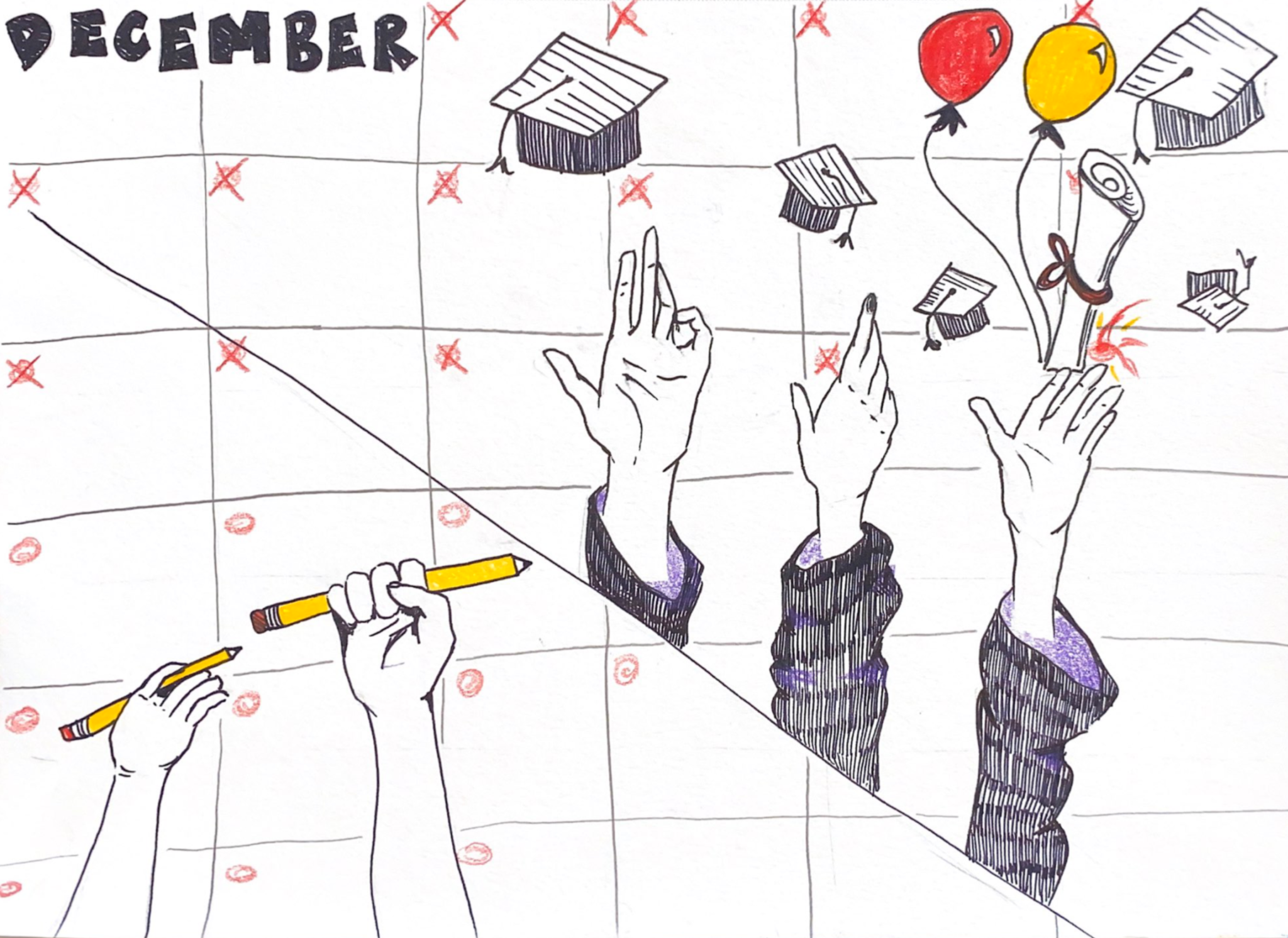In order to graduate high school, students must complete a certain number of required classes such as four years of English, three years of Math and four semesters of physical education. The average student attends school for four years in order to graduate, yet some students finish their requirements earlier, and can then leave. To graduate early, students often end up taking classes outside of school or during the summer on top of their regular school work.
Graduating high school earlier is done for many different reasons. Barbra Mellion, a District Registrar at Berkeley High School said it allows students to have more flexibility in their educational journey. “They may wish to take a gap year for travel or personal development before continuing their formal education,” said Mellion.
Yet not all reasons for leaving school early are positive.
“In some cases, students may face bullying, health issues, or social anxieties. Graduating early can be a way to transition to a more comfortable or suitable learning environment,” said Mellion.
Theresa Kubo, a freshman at Northeastern University, graduated from BHS at the end of her junior year in 2023. By having taken all the required classes on her own time, Kubo was able to graduate after three years of high school, and was able to move on to classes that she had more interest in.
“I’ve wanted to do business my whole life, and at BHS there’s no business classes. There’s an economics class, and I really thrived there … but it was only for one semester,” said Kubo. “I was stressing over classes and crying. And I was just thinking, why am I putting myself through all of this work and stress when (I already) know what I want to do?”
Graduating early was something that Kubo found very rewarding, and a ticket for her to pursue business. However, from Kubo’s experience, not all colleges viewed her early graduation as a good thing.
“For a lot of UC’s, I had a GPA that was higher than what they wanted for their average, (yet) I didn’t get in. A lot of the academic counselors say (it’s) probably because I’m graduating a year early,” said Kubo.
Graduating as a junior also meant her teachers didn’t give designated time for her college applications, unlike some teachers do during senior year. This meant regular homework for her classes, studying, taking extra classes, and applying to different colleges were all on Kubos’ to-do list at once.
Talking to advisors and counselors allowed Kubo to graduate early. “Ms. Offerman was super helpful,” said Kubo, referring to Molly Offerman, a counselor at BHS who retired last year.
Alastair Kudsk, a senior in AHA, who plans on graduating a semester early from BHS, found a lack of support by the school, which motivated them to leave school early.
“The school needs to work for us, instead of us working for the school … I have ADHD. It’s a learning disability, it affects my ability to focus and meet deadlines, and school is not really meant for people who have learning differences,” said Kudsk. They jumped on the opportunity to change learning environments. “In my experience, the school has been extremely difficult for me to keep up with and when I found out that I qualified for early graduation, I took it immediately,” they said
Kudsk plans to get a job, take a couple of online college classes and then transfer to a California State University.
James Winer-Fashing, a senior in AC, also did not feel enough support from school, which prompted him to graduate early. After graduating, Winer-Fashing is going to move to Boston.
Graduating early was made possible by Winer-Fashing taking two English classes during his junior year, and taking a statistics course at Berkeley City College over the summer. Now, starting his final semester, he’s taking both government and economics classes at the same time. He is doing this in order to finish getting all of his required credits in order to graduate early.
“I think that (life) will get better after I graduate,” said Winer-Fashing. “You can make it out early.”





